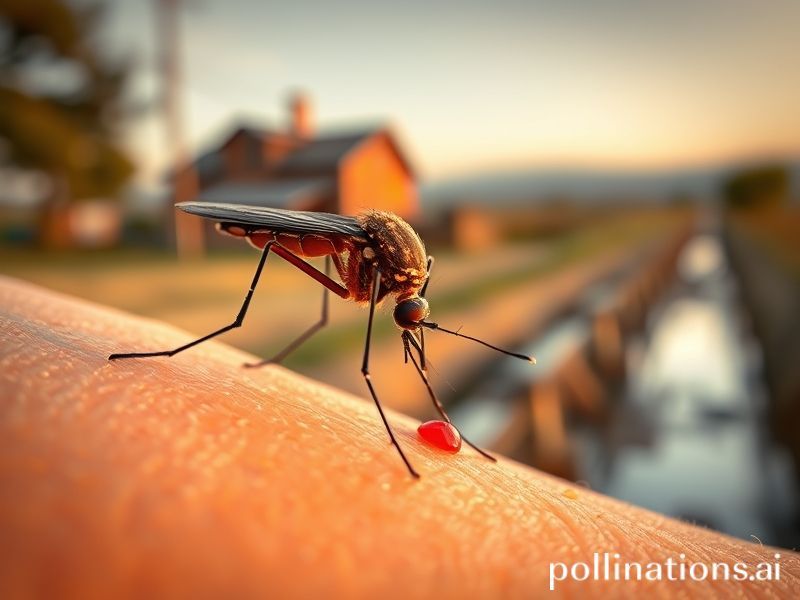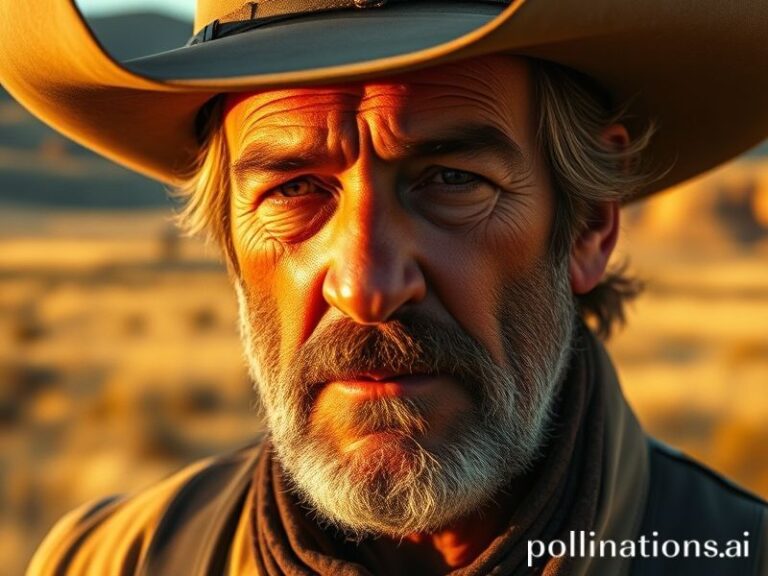west nile virus
West Nile Virus: A Global Mosquito’s Grand Tour
By the time you finish this sentence, roughly 47 new humans will have been bitten by mosquitoes. One or two of them—depending on the neighborhood and the state of local sanitation budgets—might be welcoming West Nile virus (WNV) into their bloodstream. The virus, discovered in Uganda’s West Nile district in 1937, is the consummate frequent-flyer: no boarding pass, no jet lag, just wings and ambition. From the Nile basin it hopped to Egypt, then to Israel, France, Romania, Russia, and by 1999 to New York City—because if you can make it there, you can make it anywhere, even Staten Island.
Once the virus reached North America, it behaved like a tourist who’d discovered bottomless brunch: it stayed, multiplied, and ordered extra mimosas. Within five years it had colonized the lower 48 United States, reminding Americans that globalization is a two-way street and sometimes the import is a flavivirus with a 0.5% chance of turning your spinal cord into alphabet soup. Canada soon joined the fun; in 2002, Toronto reported its first human cases, which gave local headline writers the rare chance to pair “West Nile” with “Maple Leafs” and still sound grimly plausible.
Europe, never one to be outdone by the colonies, rolled out its own red carpet. Italy’s fertile Po Valley has become a viral Riviera, with outbreaks timed as precisely as Milan Fashion Week. Greece clocks record summers the way it once tallied Olympic medals: 2010, 2018, 2022. Meanwhile, Germany—ever punctual—reported its first local transmission in 2019, prompting Berliners to stock up on organic repellent and existential dread. The European Centre for Disease Prevention and Control now publishes annual maps that look like vintage airline route charts, except every dotted line ends in a tiny skull-and-crossbones icon.
In the Global South, West Nile has always been less a headline and more background radiation. Across the savannahs of East Africa, where the virus originally auditioned for pandemic stardom, children test seropositive before they learn long division. That seems unfair—like holding dress rehearsals in a village hall and then opening on Broadway—but virology respects neither equity nor frequent-flier miles. In India and China the pathogen lurks amid overlapping arboviral traffic jams of dengue, chikungunya, and Japanese encephalitis, creating a virological Times Square at rush hour. Public-health officials play whack-a-mosquito with insecticide budgets that disappear faster than free conference swag.
Climate change, the planet’s favorite uninvited guest, has helped WNV upgrade from economy to premium economy. Warmer nights lengthen mosquito dating season; extreme rains leave chic rooftop puddles that double as insect nurseries. In 2022, Buenos Aires recorded its first locally acquired case—an event scientists called “statistically predictable” and local bartenders called “happy-hour buzzkill.” The same El Niño that spoils Pacific fisheries gifts temperate zones with brand-new vectors. Gaia, it appears, has a wicked sense of reciprocity.
And then there are the birds—WNV’s unwitting cabin crew. Migratory species on the Central Asian flyway shuttle the virus between Siberia and the Nile Delta like feathered Uber drivers. When North American robins began dying by the thousands in 2002, ornithologists mourned while municipal budget officers quietly cheered: fewer birds, fewer outbreaks, fewer emergency meetings. Nature’s PR team has yet to comment on this particular conflict of interest.
What does it all mean? First, that a pathogen can circumnavigate the globe faster than most people can renew a passport, reminding borders everywhere that they are decorative lines on a map. Second, that humanity’s preferred defense—spray, panic, forget—remains as reliable as a chocolate teapot. Finally, that West Nile virus is the mosquito’s résumé: proof that the smallest agents can hack geopolitics, rewrite tourism brochures, and make the nightly news without ever filling out a customs form.
So, as northern summer looms and the whine of tiny wings rises like a poorly tuned orchestra, remember: every itchy bump is a potential visa stamp in the passport of an emerging disease. And the mosquito? She’s not interested in your politics, your GDP, or your frequent-flier status. She just wants a blood meal and maybe a nice warm place to lay 200 eggs—preferably near that kiddie pool you “meant” to empty last week. Bon voyage.







